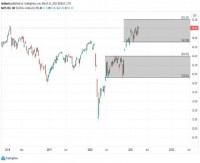|
Although figures vary there is no doubt that the Islamic Finance sector has a predicted growth rate which is unprecedented within the current climate. At the heart of this growth is the necessity to build organisations globally and to capitalise on both the weak economic trust left by the conventional market as well as the resolute appetite from investors to look at the Islamic Finance sector much more favourably; thus fuelling the demand for the development of more products to market. A direct consequence of this growth and investor appetite is the need for Islamic Finance sector organisations to attract, grow and develop their talent.
Hiring: Even with the flow of candidates from the conventional finance market place to the Islamic one there is a ‘war for talent’ simply because the competencies required are very much finite and it is not always as easy as studying for the IFQ and then jumping straight into an Islamic Finance sector position. Of course the Islamic Finance sector does need to do its part in developing new talent and hiring new blood into the system but the current roles are focussed towards more senior individuals who have experience within the industry as opposed to the requirements for fresh graduates for example, something which is also currently reflected in the conventional market place.
Nuances: Although, in reality it creates a shortage of candidates especially if fresh talent is not being developed within an organisation or the industry in general. Within South East Asia and in particular within Malaysian, Hong Kong and Singapore market place very few regional nuances actually occur and generally speaking the hiring process in the region very much follows universal norms. However, it would be foolish to suggest that any region within the Islamic Finance map is without internal stereotypes of one form or another which translates to preferences given by Boards for senior appointments to people who are either natives of the country, friends, brothers etc, etc, but it is certainly far from the equivalent of the political analogy of, ‘smoke filled rooms.’ Simply, the closer and more expansive the network the more chances of getting a job which one would argue is a universal norm and also applies to Islamic Finance.
Competencies: However, specific skills such as structuring contracts or products and of course, detailed Shariah services as carried out by scholars, whom are all required to have an in-depth and intricate knowledge of Shariah Law and its implications in order for candidates to execute their job functions correctly and this is applied across all regions, mature or developing.
Human Capital Leadership: Human Capital strategies across the Islamic Finance sector are currently very diverse in effort and nature. In multinational corporate, ‘Islamic windows’ the development and use of human capital strategies which cover talent attraction, development and retention as well as human resource development and training are very much in line with conventional industry standards and such create internal value for both current and future employees and the industry as a whole. However regions such as the Gulf show us that there are many instances where Islamic Finance and Takaful organisations have not yet been successful in fully developing human capital strategies especially in the area of compensation and benefits. A recognised framework for comparative salaries and benefits has not been developed across the Gulf and what tends to happen is that some countries and their subsequent organisations pay salaries dependent upon country norms rather than industry norms. This, on an internal perspective is fine, however, can also be detrimental for a company in the attraction of talent from different Gulf countries as well as on a Global basis and when hiring is essential in the development of the company such strategies pay dividends. The Far East and in particular Malaysia which is one of the most mature markets within the Islamic Finance sector, looks more towards regional trends as opposed to global trends when it comes to compensation and benefits which are actually on par with other parts of the world. The Malaysian market also provides an additional attraction to candidates considering the region simply because if they have worked within this maturity level then the experience it provides on a global level is invaluable.
The future: Although HR activity within Islamic Finance sector is developing, it is only fully developed in Islamic Finance windows which have a larger corporate system to extend HR best practice. In Malaysia there are a variety of HR Acts and a government ministry as well as the forging of best practice through the Malaysian Institute of Human Resources. Although governments within the GCC are committed to developing human capital its is very much from a national perspective rather than a industry perspective and generally there is not a single voiced regional HR body represented within the GCC, that looks at HR best practice such as the CIPD in the UK.
Conclusion: Clearly there is a long way before Islamic finance will be on par with conventional finance but one thing that the current climate has show us is, that the industry is certainly here to stay and for people looking to get into the industry although now may not be the best time, it is a viable career option at all levels. |
Opalesque Islamic Finance Intelligence
Opinion Column: The Future of Talent: An Islamic
Finance Perspective. |





 RSS
RSS









